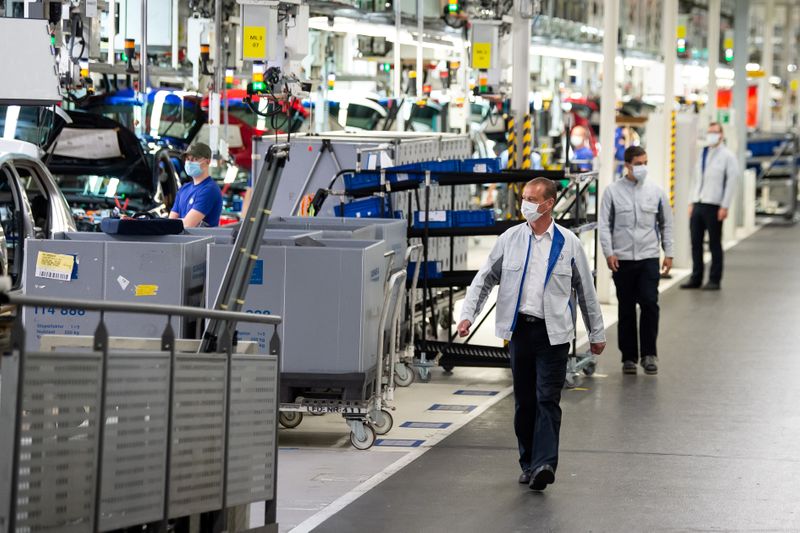By Jonathan Cable
LONDON (Reuters) - Euro zone factory activity raced along in February thanks to soaring demand, a survey showed on Monday, although the burst of business led to a shortage of raw materials and a spike in input costs.
Restrictions imposed across the continent to try to quell the spread of the coronavirus have shuttered vast swathes of the bloc's dominant services industry, meaning it has fallen to manufacturers to support the economy.
IHS Markit's final Manufacturing Purchasing Managers' Index (PMI) jumped to a three-year high of 57.9 in February from January's 54.8, ahead of the initial 57.7 "flash" estimate and one of the highest readings in the survey's 20-year history.
An index measuring output, which feeds into a composite PMI due on Wednesday that is seen as a good guide to economic health, climbed to 57.6 from 54.6, well above the 50 mark separating growth from contraction.
"Manufacturing is appearing as an increasingly bright spot in the euro zone's economy so far this year," said Chris Williamson, chief business economist at IHS Markit.
"The solid manufacturing expansion is clearly helping to offset ongoing virus-related weakness in many consumer-facing sectors, alleviating the impact of recent lockdown measures in many countries and helping to limit the overall pace of economic contraction."
A Reuters poll last month showed the bloc was in a double dip recession and that the economy would contract 0.8% this quarter after shrinking 6.9% in 2020 on an annual basis. [ECILT/EU]
Rocketing demand for manufactured goods pushed factories to increase staffing levels for the first time in nearly two years.
But lockdown measures disrupted supply chains and factories struggled to obtain raw materials, leading to a big increase in delivery times.
"The growth spurt has brought its own problems, however, with demand for inputs not yet being met by supply. Shipping delays and shortages of materials are being widely reported, and led to near-record supply chain delays," Williamson said.

Those shortages allowed suppliers to hike their prices at the fastest rate in almost a decade. The input prices PMI bounced to 73.9 from 68.3.